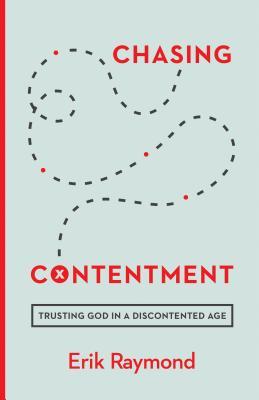What do you think?
Rate this book


176 pages, Paperback
First published March 1, 2017
Contentment comes through knowing and loving the truth. It is not enough to simply know theology; we must love the God we are studying. And it is not enough to say we love a God we do not know. Godliness is concerned with both knowing and loving.
Too many of us practice dental-chair devotions. We grab our Bibles, spend some time in them, and then we are done. We promptly put down our Bibles and hurry on to our daily tasks. A few hours later someone could ask, “What did you read in the Word today?” And the answer, too often, would be “I can’t remember.” What has happened? We’ve grabbed a little Bible reading, swished it around in the morning, then spit it out on our way out the door. The treasures of the Word haven’t been swallowed and digested. We haven’t really engaged the mind and heart with the Word. How we read the Bible is pivotal to our pursuit of contentment. After all, contentment is learned by growth in grace. And remember, contentment is the inward, gracious, quiet spirit that joyfully rests in God’s providence. To get there, we can’t simply go through the motions; we need to resist “swish and spit” devotions.
The heart of the matter is that when we ourselves determine what will satisfy, we don’t pursue what brings true satisfaction. The broken compass within us always leads to the dumpster rather than the five-star restaurant. We are painfully off in our calibration. The problem is not that we are seeking satisfaction; it’s the way we naturally seek it. To find true satisfaction, we have to “just say no” to ourselves. Or, to put it biblically, we must deny ourselves.
We should not miss the fact that the call to deny self is also a call to follow Christ. God does not simply call us to repudiate ourselves. Instead, he calls us to repudiate ourselves and to receive him—and with him, our true identity. These are words of conviction and grace that pursue us amid our confusion. Like Adam and Eve clinging to their fig leaves, we cling to our selfishness. And God pursues us in grace and calls us to put aside the folly and look to him. This call of Christ to deny ourselves is a call of faith. It is a call to appraise ourselves based on the scale and measure of God’s Word, and then to apply the same measure to Christ. Such a comparison shows how much we are lacking and how completely Christ supplies our need.
The ultimate medicine for our souls is the cross.
True contentment comes through a true knowledge of Christ. The church is the means by which the gospel goes out and the context by which the gospel is applied.